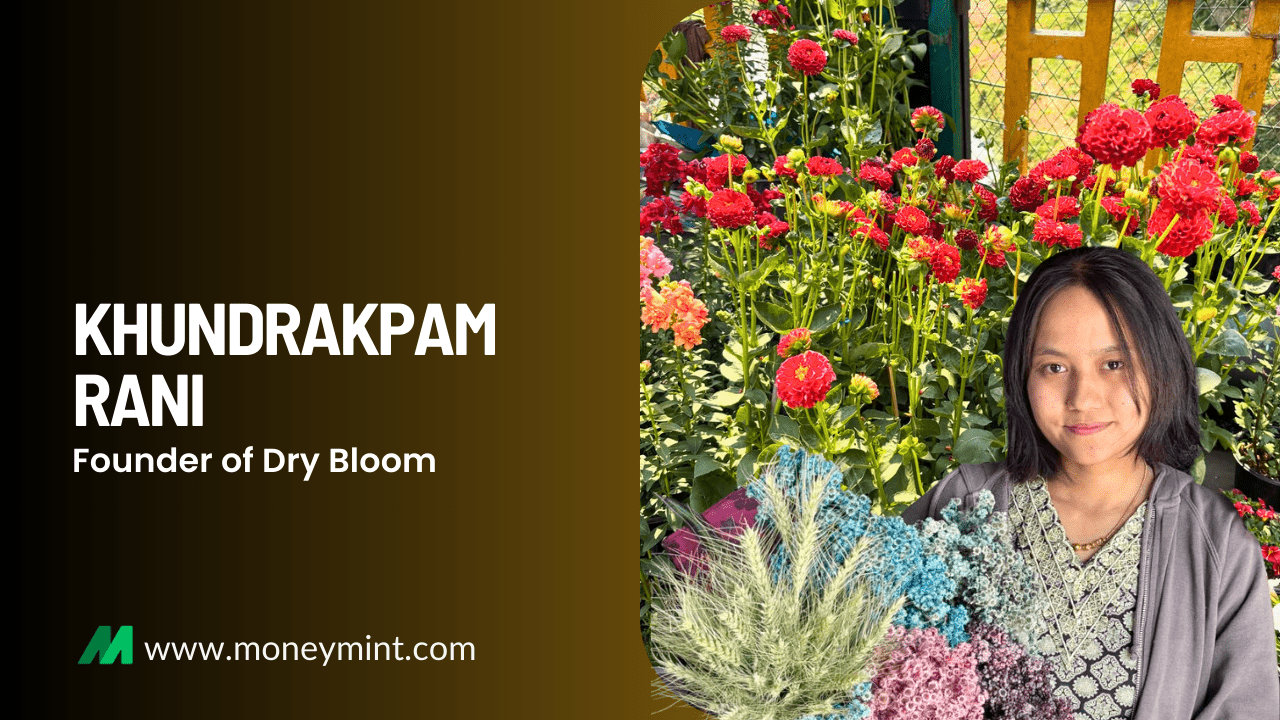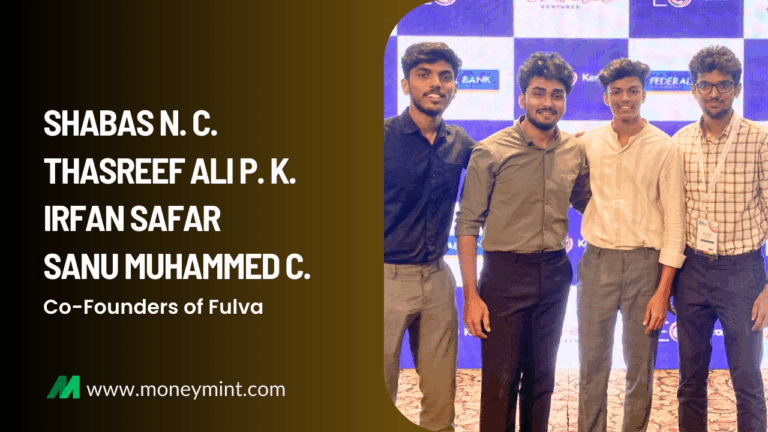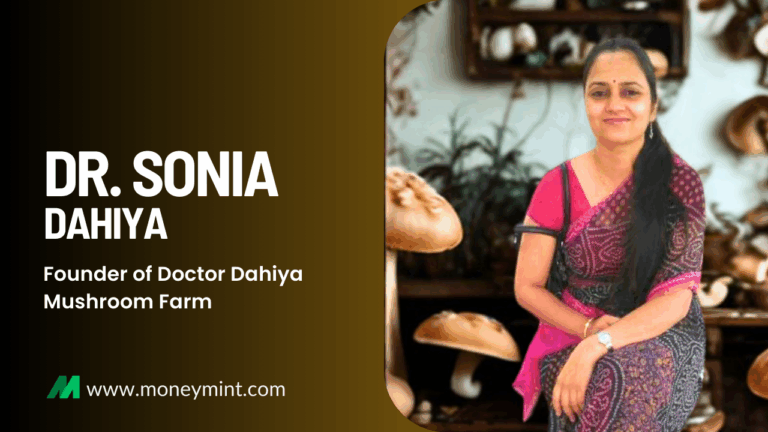When people were sending virtual flowers, kisses, and hugs, this 27-year-old girl from Manipur was building her wildflower business. Khundrakpam Rani, the then-3rd-year masters student, inspired by others following their passion, decided to enter the flower market with her unique approach: wildflowers. Today, her venture clocks Rs 2 lakh monthly.
Early Life and Background
27-year-old Khundrakpam Rani from Tera Lukram Leirak in Imphal West district grew up surrounded by the vibrant beauty of flowers throughout her childhood. She cultivated a profound love for them, particularly those in her family’s garden.
Her childhood fascination with flowers, coupled with her mother’s passion for gardening, planted the seeds for her business.
Rani’s mother, Khundrakpam Nandarani, remembers how they grew flowers like gomphrena, dahlias, roses, celosias, helichrysum, chrysanthemums, and portulacas together.
Rani’s decision to pursue a master’s degree in botany from Manipur University was a natural progression of her passion for flowers. Her fascination with plant life developed further due to her mother’s enthusiasm for them.
Turning the Lockdown into Opportunity
The lockdown witnessed the foundation of one more fragrant venture.
While pursuing her studies amid the COVID-19 pandemic, the aspiring young entrepreneur discovered an idea that would shape her future. With lockdowns restricting activities, she found herself spending countless hours scrolling through social media.
Yes, we all were trapped in that loop, remember?
It was there that she observed many individuals transforming their passions into thriving businesses, igniting her own inspiration to take a risk. That flashed the bulb in her mind, why doesn’t she turn her love for wildflowers into something beautiful and lasting?
This resulted in the foundation of Dry Bloom in December 2020.
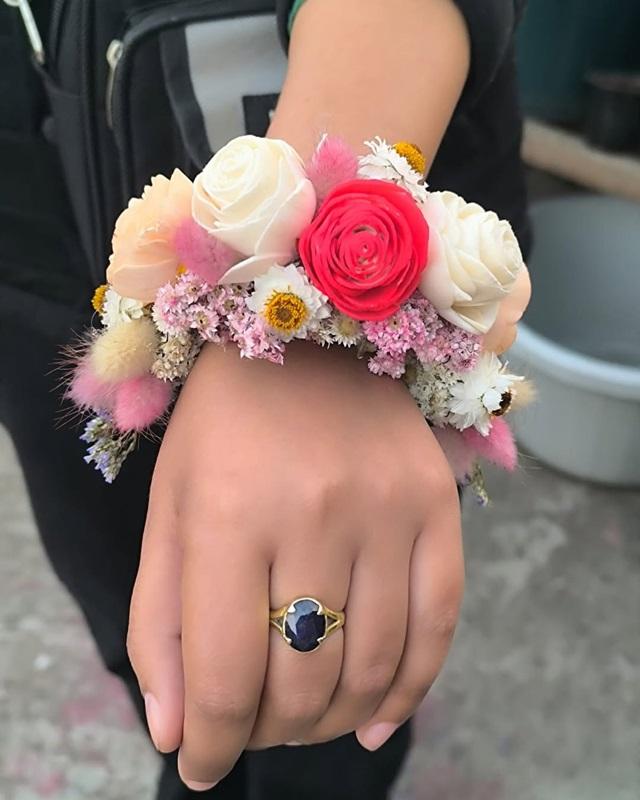
Launching a business in a niche market comes with its own unique challenges. She was doubtful whether people would embrace the idea or find it too unconventional. Yet she took the leap of faith.
The first wildflower Rani encountered was flamingo celosia, which she discovered flourishing along the riverside in Sekmai, close to her home. She carefully harvested the flowers, dried them, and arranged them into a stunning bouquet.
Then, she shared the end product online, and the response was encouraging. People’s positive feedback inspired her to carry on, and that she can do it.
Dry Bloom offers mini and large bouquets, sola wood flower bouquets, handwoven kauna grass baskets, and gift hampers.
Most of the flowers are taken from the hills of Manipur, and the sola flowers are gathered from places like Kolkata and Bengaluru.
Challenges and Solutions
Embarking on her entrepreneurial journey was challenging from the outset.
Challenge #1: Initially, her mother, Nandarani, expressed little support.
Obviously, our parents get concerned when we try something new, especially with our career.
And her mother was not unaware of the risks involved in starting a business. Moreover, with no business background, she encouraged Rani to opt for a government job.
Turning Skepticism into Support
Rani’s determination to pursue entrepreneurship was unstoppable. She reassured her mother, asking for time to prove that she could build a profitable business. Rani continued to post her products on Instagram, gaining a small but loyal customer base.
Over time, her mother’s views changed. Saying and doing are different things. Parents are convinced with our input and the output (revenue for our hard work).
Similarly, her mother saw how much effort Rani was putting into her business. She decided to help her daughter with her dream business.
Challenge #2: Are wildflowers really safe?
Another significant hurdle was convincing people that wildflowers are a safe and valuable product. Mostly, people do not prefer buying a wildflower bouquet.
That is a general scenario.
But word of mouth and positive customer reviews slowly helped her overcome these doubts.
As her business grew, so did the support from her community. The mother-daughter duo embarked on an exciting journey of experimentation, crafting an array of products that included wildflower bouquets and floral accessories like bracelets, hairpins, and headbands.
To enhance the variety and color, they included the process of dyeing the flowers.
The Business Started Blooming
In the beginning, Rani juggled her business and her third year of master’s studies. Today, Dry Bloom thrives, generating a monthly revenue of around Rs 2 lakh, even in the face of recent challenges in Manipur.
The company suffered a loss of Rs 50,000 during the Manipur unrest, but eventually, they found ways to manage and reduce the losses.
Expanding the Roots
As Dry Bloom started doing well, it moved beyond Manipur and began shipping products all over India. What began as a tiny business, serving locals five years back has now reached folks in Delhi, Bengaluru, Meghalaya, Nagaland, and Andhra Pradesh.
Everything Natural and Sustainable
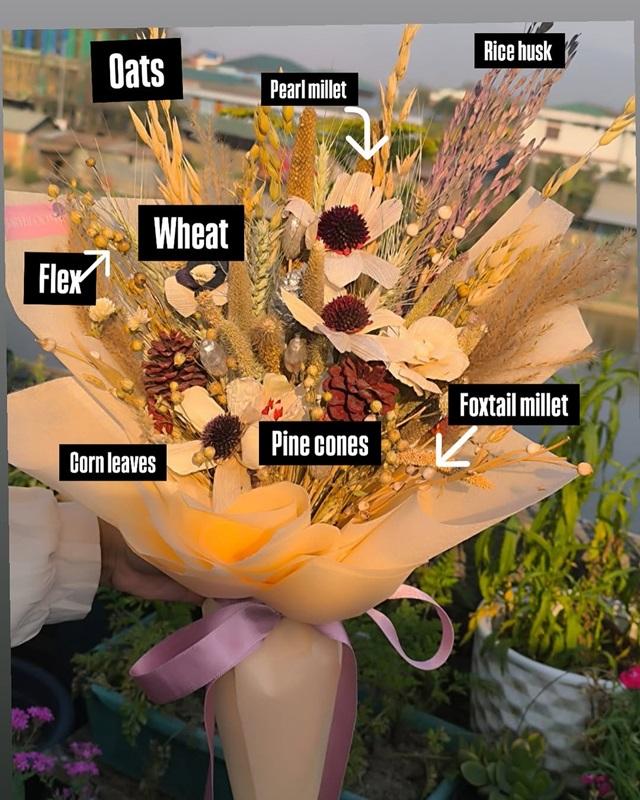
The mother-daughter team, nature lovers, how can they think beyond sustainability? They both value eco-friendly and sustainable products, and that’s a big part of what Dry Bloom is all about.
To make flower arrangements, flowers like Anaphalis, andropogon, flamingo celosia, and pampas from the hills are paired with edible plants like rice husk, maize, and wheat.
That’s cool!
Her floral arrangement process is a testament to sustainability and eco-friendliness, starting with the careful gathering of wildflowers from the hills. After collecting the blooms, she lets them dry naturally over the course of a couple of weeks. This way, she is consciously steering clear of energy-intensive artificial preservation methods and avoids heightening her environmental footprint.
Sustainable Preservation and Handmade Final Products
Through this eco-friendly method, flowers are preserved while minimizing resource use. After drying, she skillfully crafts them into unique bouquets, rejecting mass production.
No compromises are made on the natural beauty of the flowers! 🌸
HOW?
- After collecting, she trims the flowers to the desired length, ties them together, and hangs them upside down to dry (for about 2 weeks).
- Then, the flowers are dyed as per the customer’s preference.
- Again, the batch is sun-dried for another day, to allow colors to set and the flowers get a natural finish.
- Then, the flowers are moved to a dark room with no direct sunlight for complete drying.
- Finally, after that, the flowers are handcrafted (no machines are used) into different products like gift hampers, bouquets, home decor, wristbands, and more.
Empowering Local Women and Sharing Knowledge
Not only flowers, but Rani prioritize people around her to work with.
Rani has hired two local women to assist in scaling her business. She is not only offering financial stability for herself and her family, Dry Bloom has also generated valuable employment opportunities within the community.
Beyond generating employment, Dry Bloom amplifies its influence through skill development. Rani and her team organize training sessions in schools and local communities, imparting the art of crafting wildflower bouquets to others. So far, the team has trained 100+ people.
Dedicatedly, Rani is steadfast in her commitment to growth and the empowerment of others. She wants to expand more, create more job opportunities, and establish Dry Bloom as a household name in India.
She aims to inspire more women in her community and encourage them to follow their passions.
What started as an experiment to follow her passion, Dry Bloom changed the course of Rani’s life. Who, in turn, is changing the lives of several others with her venture, dedication to share knowledge, and vision to uplift women.

